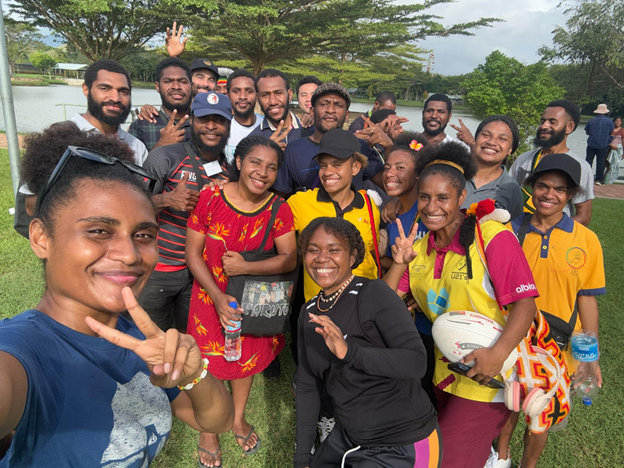
Papua New Guinea: Difficult Topics, Direct Talk
“I never realized that sex could be positively taught about from up front. I was always told that it was wrong, something to be ashamed of.”
This young woman was not alone. The other 150 students attending TSCF Papua New Guinea’s Bible Summit in June also welcomed the opportunity to talk about intimate relationships and receive guidance from Scripture.
Juliette, a TSCF staff worker, notes:
“In Port Moresby (the capital), young people are strongly influenced by western cultural trends. This has forced some churches to address relationship issues. However, most of our students come from rural areas, where the only teaching they’ve had is from ‘personal development class’.”
So, the team decided that this year’s Summit should help students gain a biblical perspective and see Christ as Lord over sexuality and marriage.
Restriction to Freedom
One third-year law student described the experience as “deeply eye-opening”. He felt challenged about walking into a relationship and just “winging it”. He wants to be more intentional.
“The summit made it clear that love is not about satisfying your desire, but about commitment, sacrifice, and helping the other person grow closer to God. If I truly care about someone, I must help guard their heart, mind, and body from the damage of ungodly intimacy. That means setting clear boundaries and walking in accountability.”
He also left with a solid understanding of worth and integrity:
“I’ve come to recognise that my worth, security, and identity come from Christ alone, not from relationships, approval, sexual experience, or cultural expectations of ‘being the man’. I now see this not as a restriction but as freedom – a joyful, powerful way of living that honours God and protects what he values most: his image in me and others.”
Silence to Service
The summit’s teaching not only addressed how students approach relationships now. It also prepared them for marriage by helping them reassess cultural norms and expectations. Juliette explains:
“In this culture, so much is assumed rather than discussed. This means high levels of domestic violence continue, along with a poor understanding of family roles and responsibilities, including many ‘absent fathers’. And polygamy is widespread, generally accepted as a sign of male strength.”
David Walter, IFES Regional Secretary for the South Pacific, points out how strategic this Summit has been:
“It’s superb to see the national movement tackling something that’s rarely talked about in the churches. Intimate partner violence, marriage breakdown, and sexual assault are widespread problems. So, exploring the biblical perspective like they did is also a great way of serving society.”
Pray
- Give thanks for the vision to discuss such difficult topics at Summit, for the engagement with Scripture, and for the positive impact on participants. Pray that students will continue to bring cultural norms before the light of God’s Word and choose to honour him.
- As the one male TSCF staff worker (apart from the General Secretary) departs to further his studies, ask the Lord to stir young men to join the staff team. Currently, five young female staff support student leaders across different campuses.
- Students and staff from TSCF will soon travel to the Solomon Islands for the South Pacific Regional Conference (11-14 September). Pray that the teaching and cross-cultural fellowship will strengthen student witness in each movement – and ask that those without local IFES ministry will be inspired to start it.
